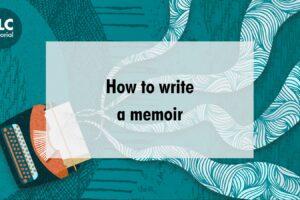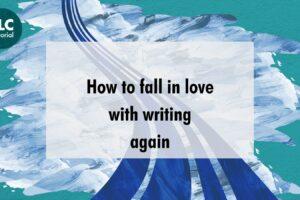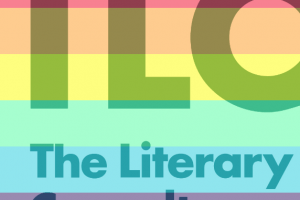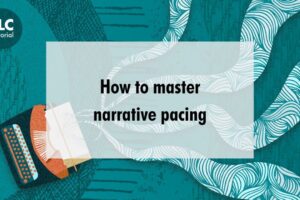“You’ll never be taken seriously as an author.”
“If you self-publish, you’ll never be accepted by a traditional publishing house.”
These were just a small selection of the comments I received when I was thinking of self-publishing my debut novel Girl Gone Greek. To be honest, with the number of rejections I’d received from Agents, I didn’t think it really mattered as I was getting rejected anyway. So I bit the bullet and went ahead and self-published first via Createspace (print version of my book), then Kindle.
The steps
Back when I started writing my novel in 2010, I consulted The Literary Consultancy and Tessa West was assigned to advise me as my Chapter and Verse mentor. It was great advice for a first time author and proved invaluable to me. I decided to go ahead and make my book a fiction novel: a memoir from a first-time author would not sell well I thought – plus fiction gave me the room to explore more and stretch the story and truth! The result is Girl Gone Greek, self-published and many good reviews on Amazon UK and Com as well as Goodreads.
Make sure you get your novel professionally typeset. It’s worth spending the money.
Feeling initially somewhat overwhelmed and not knowing where to start, I turned to Createspace’s website (www.createspace.com). My novel was complete and had been edited several times, so the next step was to upload it onto Createspace’s platform. But I had to ensure the novel was typeset correctly. There’s nothing worse than uploading your novel in Word or Adobe format and seeing the end product (before printing – Createspace enables you to check it) all misaligned. Createspace is a free to use service to upload your book and avail it for sale on Amazon – it also offers extra services such as typesetting, book cover designs, etc. – but I chose to source my own. A friend who lives locally had designed some text and images for me to use in the body of my book and was familiar with the typesetting process. She spent a good week converting my Word file to Adobe In-Design, and after several attempts at uploading the finished product onto Createspace and checking each individual page, it came out right!
Tip 1
Make sure you get your novel professionally typeset. It’s worth spending the money.
Next came the cover. I had already found the person that I wanted to work with me for my book cover – he ‘got’ me, he understood the essence of my novel and as I understand the importance of a good book cover, to find someone who understood me was vital.
Tip 2
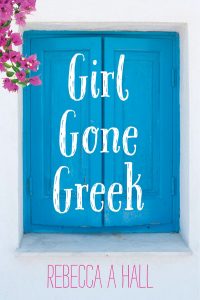 Createspace gives you the opportunity to design your own book cover through their site, but it’s worth spending the money for a good book cover designer. My designer charged £400 plus VAT for the print and Kindle version including back cover, ISBN number printed on and blurb printed onto the back.
Createspace gives you the opportunity to design your own book cover through their site, but it’s worth spending the money for a good book cover designer. My designer charged £400 plus VAT for the print and Kindle version including back cover, ISBN number printed on and blurb printed onto the back.
Note: Createspace provides you with an ISBN number – one’s not needed for Kindle.
Ahh – but then I needed to ensure I advised my book designer the correct width of my book. This all depended on final length of pages, etc.
It sounds a LOT more technical than it is – and I must admit, initially I was getting really quite stressed, but Createspace calculates this all for you and it was easier than it seemed.
Have I regretted self-publishing my book? Not yet, no. I released it on 12 June 2015 and have received a ‘steady’ income from it per month. Createspace (print version) pays you for the previous month, Amazon Kindle for two months prior ie: in October 2015 I was paid for September’s print sales, and August’s Kindle sales. Depending on where you’re located, it usually gets paid directly into your bank account.
Have I regretted self-publishing my book? Not yet, no.
You can select your own pricing for both print and Kindle books – I had joined a few Facebook and Linked In groups to gain advice on how much to charge, plus I’d researched books of a similar length and genre.
The only charges involved were the typesetting and book cover (and editing as I sourced my own). Createspace and Kindle don’t charge you to sell through them – they take commission off each sale. The print version is Print on Demand service (only printed when a book is sold).
The Kindle version allows you to select what commission you’d like to earn: typically 35% or 70%. I think with the 70% option, you have to exclusively sell it through Amazon though (not other online retailers). When setting your pricing on Createspace, it estimates how much commission you will earn so you are able to decide accordingly.
Freedom
Benefits of self-publishing? The freedom to not feel pressured into ensuring my work ticks all the right books. My book’s been accused of being ‘genre less’ and hence unmarketable and unsellable. But I do sometimes wonder whom the Agents and Publicists are working for. Some of the reviews I read in the newspapers for not just books, but films as well, aren’t always so accurate in that I’ve loved a film or books that’s received a negative review – it’s all so subjective, even by the ‘professionals.’ “Fifty Shades of Grey” did very well and whilst it’s not my type of book, it is proof that there are a LOT of people that enjoyed it. If E.L.James had given up because of rejections by publicists, she’d never have earned her popularity.
Equally, there are books that make it onto the New York Times Bestseller’s list that I’ve found very hard to get into. Personally I feel self-published books opens up to everybody, not just the ‘book elitists.’
As a self-publisher, I feel in control. I don’t feel like I have to be boxed into a specific genre and my books seem to be selling – so someone likes them!
As a self-publisher, I feel in control.
OK, I am not making a fortune but I guess it depends on what one is after: this particular book I want to reach the masses as it’s a subject I want people to be passionate about: to see Greece as a beautiful country. So it’s about reach rather than money. And I’ve been lucky: the expat community here in Athens have latched onto this book, they love the cover and says that sells it immediately. So they have offered help in the form of advertising and I had a book launch and signing here in September 2015 – was given the venue free of charge, including wine and finger food. Plus I’ve created my own Author page on FB: www.facebook.com/AuthorRebeccaAHall
Marketing
It’s been said that the downside of self-publishing is taking on board your own marketing. As yet, I’ve not had an issue with this. I had mini-postcards of my book cover and details on the reverse printed and take photos of them regularly and post on a Facebook group. Facebook groups are a great community to share. Not just author groups, but find a group relevant to the theme of your book. Girl Gone Greek touches on expat issues and as there are several expat sites on Facebook, it’s been well received there.
Create your own Author page with a lovely image of your book cover as your header picture (remember the importance of a good book cover??).
Start your own blog or, if you have one already, blog about your book – interview other authors of a similar genre about their books on your site, they will reciprocate.
I’ve found the indie (independent) author community to be incredibly supportive.
That’s not to say I wouldn’t consider a ‘deal’ – but I am sure they’re very hard to come by these days. It would help me to discipline myself more, to actually sit down and write (if I was getting paid to). If I’m being honest, I do tend to go for long periods of not being able to write.
I am left wondering, though, just what boxes authors are supposed to ‘fit into.’ Self-publishing, for me at least, has removed that pressure and allowed me more freedom.



